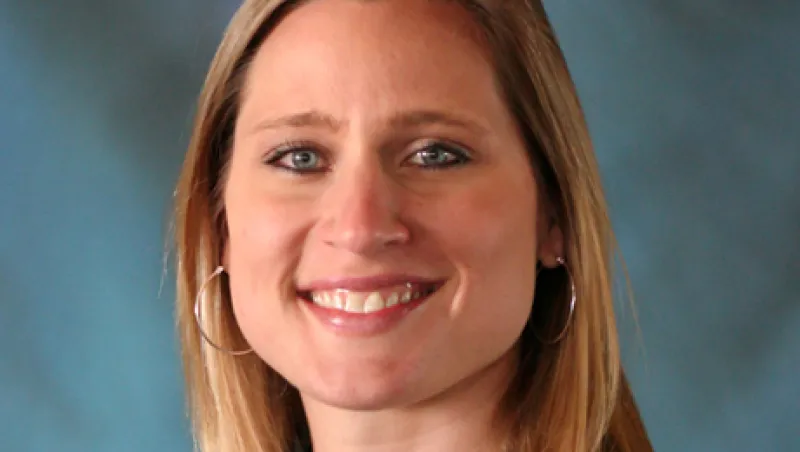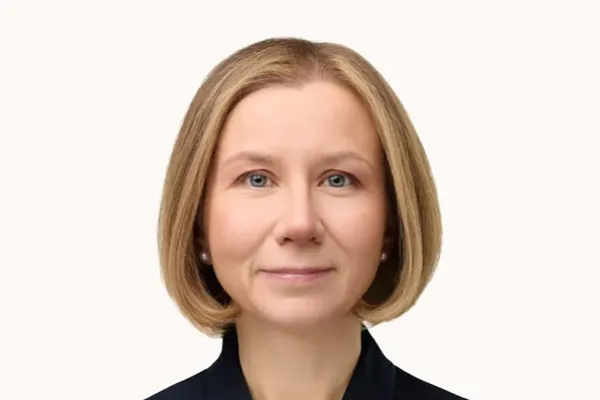Back in 2007, U.S. women’s hockey great Angela Ruggiero reportedly turned down a job offer from Donald Trump after being cut midseason from his reality TV show The Apprentice . Ruggiero has since found plenty of other ways to keep busy, including a stint at hedge fund giant Bridgewater Associates . Her latest gig: head of the International Olympic Committee Athletes’ Commission. “Olympic athletes preparing for competition...I feel lazy,” she tweeted from the Summer Games in Rio de Janeiro on August 11.
Yeah, right. Ruggiero, 36, played ice hockey internationally for 16 years, becoming one of the sport’s most decorated players. She’s represented her country in more games — 256 — than any other man or woman. As a defenseman she earned four Olympic medals — one gold, in 1998, the first year women’s hockey was played in the Games — and medaled in ten world championships.
An IOC member since 2010, Ruggiero advocates for athletes, but she also understands the Games as a multibillion-dollar business. In May the Simi Valley, California, native was named chief strategy officer of the candidature committee for Los Angeles’s bid to host the 2024 Summer Olympics. Her role is to sell the city to the international Olympic community, partly by helping to craft a plan for LA 2024 that avoids the financial and logistical problems suffered by the recent Rio and Sochi Games.
Ruggiero hasn’t looked back since she retired from international competition and professional hockey in 2011. The Olympic champion, who already held a master’s of education in sports management from the University of Minnesota Twin Cities, earned an MBA at Harvard Business School. In 2014 she joined Westport, Connecticut–based Bridgewater, where she spent 14 months as a senior management associate in the office of founder and CEO Ray Dalio. Her job included advancing the $150 billion hedge fund firm’s unique culture, which prizes what Dalio calls radical truth and transparency.
Ruggiero has also branched out into entrepreneurship. In 2012 she joined the sports medicine advisory board at MC10, a Lexington, Massachusetts–based wearable-biotech developer whose Bluetooth-enabled BioStamp patch captures physiological data such as heart rate and temperature in sports and medical settings.
Ruggiero has been with MC10, which was founded in 2008, since the early days, according to global head of business development Isaiah Kacyvenski, who also chairs the advisory board. Tapping into the knowledge of such a talented and thoughtful athlete has helped the company to think about BioStamp’s applications on the playing field and beyond, explains the former National Football League linebacker, who attended Harvard with Ruggiero.
“Angela has many layers,” Kacyvenski says. “Ice hockey was something that was great in her life, but she’s so much more than that.”
In her IOC role Ruggiero knows that the Olympians she represents face financial as well as athletic challenges. She recently signed on as an adviser to and ambassador for a global financial literacy effort called Practical Money Skills for Athletes, which credit card provider Visa announced at the Rio Games.
Even women athletes who turn professional can’t expect to earn much of a living. Although female pro sports leagues are now looking financially viable, their members still need to hold second jobs. The two highest-paid players in the recently launched National Women’s Hockey League each make $26,000 a year, according to a spokesperson for the organization.
With that in mind, Ruggiero wants the game she loves to keep expanding. “Women’s hockey continues to be the fastest-growing segment of our sport,” she said in her induction speech at the U.S. Hockey Hall of Fame in Eveleth, Minnesota, last year. “I went to business school a couple of years ago, and you hear the word ‘disruption’ all the time,” Ruggiero added. “What’s going to disrupt our sport?”






